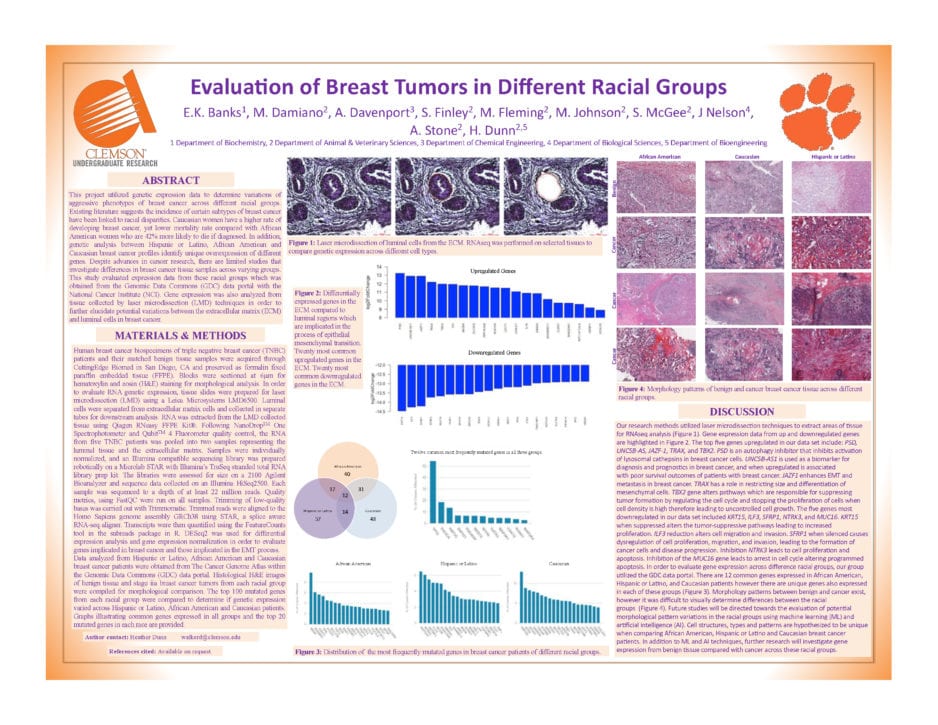College of Science faculty and staff recognized for excellence
Several Clemson University College of Science faculty and staff were honored for excellence during a virtual ceremony on May 6.
The awards recognizing teaching and research excellence, outstanding performance and outstanding student service and engagement were announced following the College’s spring faculty meeting.
The honorees were:
Outstanding Staff Member
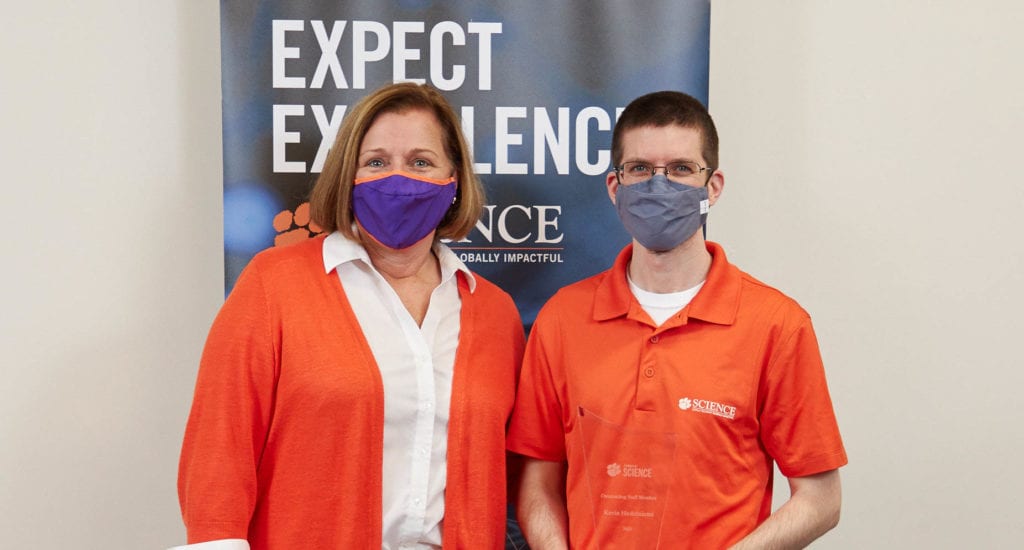
Honoree: Kevin Hedetniemi
Hedetniemi, a systems programmer and developer on the College of Science’s continuous process improvement team, combines technical skill and a can-do spirit to produce some of the most robust systems deployed at the University. The academic continuity protocol he developed for the College of Science was used as best practice during the pandemic. Working with Clemson Computing and Information Technology, he helped modify the tool to implement the provost’s academic continuity preparedness system, providing vital information for Clemson’s COVID-19 virtual education planning.
Outstanding Staff Member
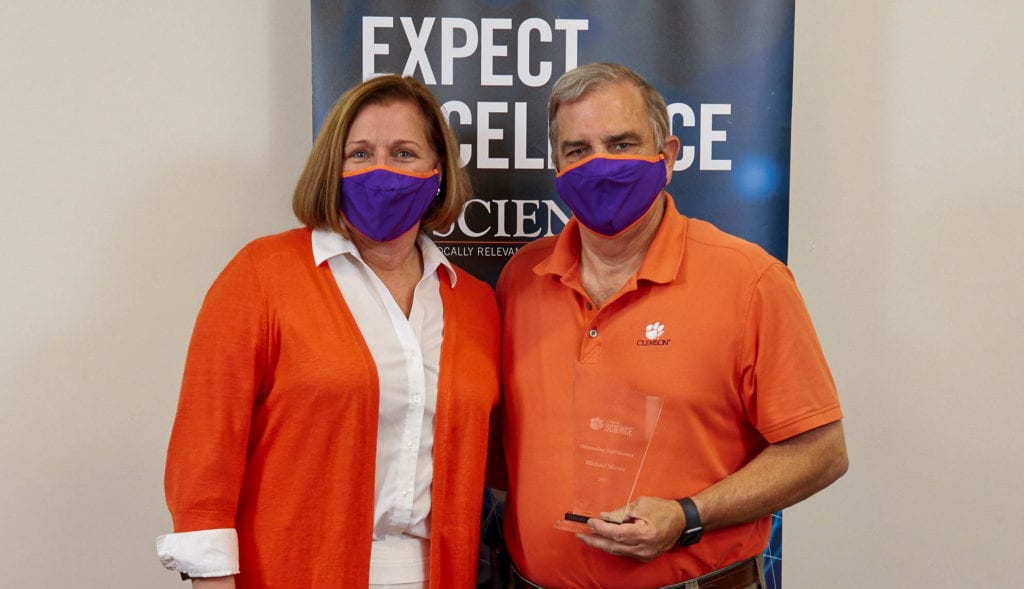
Honoree: Mike Moore
Moore is a project coordinator in the Department of Biological Sciences and serves as the building manager for Long Hall, Jordan Hall and Kinard Annex. All 15 of Moore’s nominations had the common theme that he is the “do everything’ person not constrained by his job description. It was especially evident this past year when he enabled, not just supported, the department’s response to the pandemic. In addition to being on-site during the pandemic to perform his regular duties, Moore was instrumental in providing a safe environment for faculty, staff and students.
Hattie B. Wagener Award
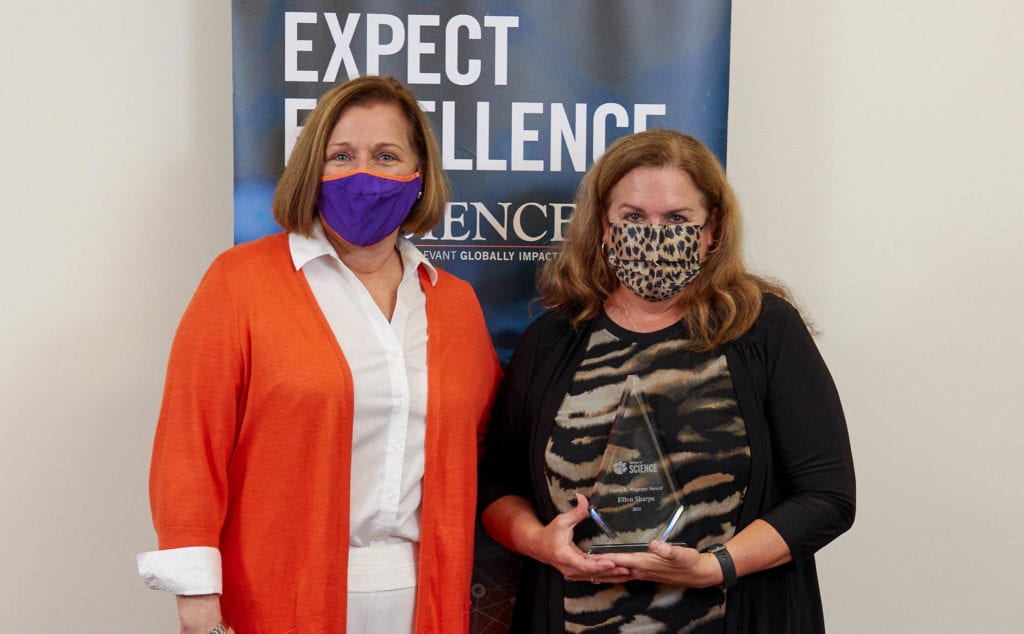
Honoree: Ellen Sharpe
Ellen Sharpe, office manager for the chemistry department, received the Hattie B. Wagener Award. The endowed staff award honors the memory of longtime Clemson administrative staff member Hattie Boone Wagener. It recognizes an individual who readily and routinely exceeds stated job duties and presents a positive work attitude. Sharpe serves everyone with the same calm and professional approach. Her respect and attention to the needs of students have helped students feel much more a part of the department, something that produces a ripple effect from the teaching program to research labs.
Outstanding Team
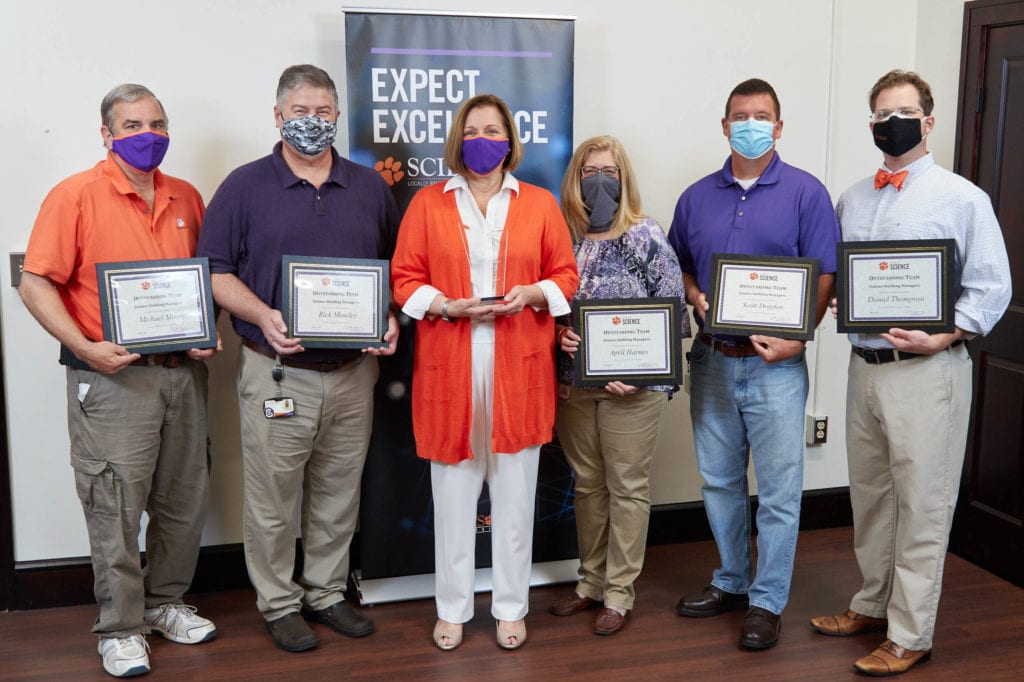
Honorees: Science building managers
Science building managers Scott Drayton, Rick Moseley, Mike Moore, Daniel Thompson and April Haynes work tirelessly as individuals and as a team to keep our Science buildings safe and operational. They ensure all regular maintenance is performed, coordinate room assignments, find space for the College’s ever-growing graduate student population and a host of other tasks, many of them unseen by faculty, students and staff. During COVID, they managed building access as rules changed during the pandemic, moved and rearranged furniture, installed barriers and signage to allow for social distancing and safe movement, and monitored and reported building compliance issues. When conditions improved and people started returning to campus, the rooms and buildings were ready for their return.
Excellence in Teaching Award
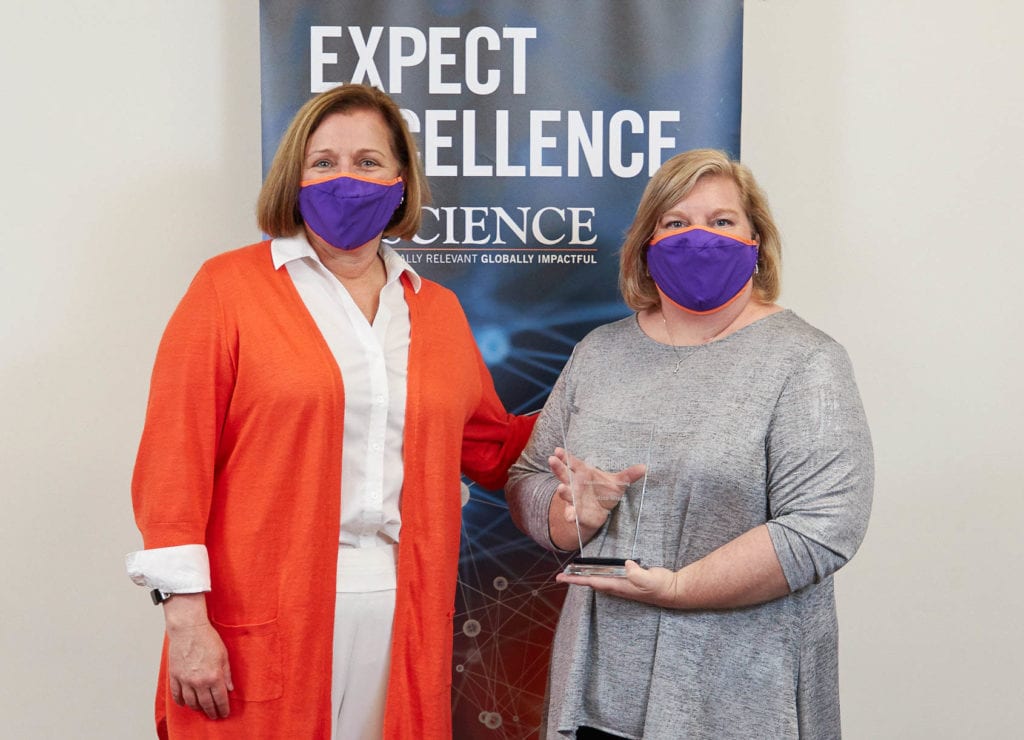
Honoree: Christine Minor
Senior lecturer Christine Minor teaches three different levels of introductory biology and coordinates the accompanying lab sections and graduate teaching assistants. She recently redesigned her courses to incorporate different teaching practices and multiple teaching modalities to better serve her students. When the pandemic forced her to move her lab courses online, Minor included scientific inquiry and hands-on experimentation in creative ways that students could do at home instead of in a laboratory. One student wrote, “This is the first asynchronous and flipped classroom model I have seen that works, and it should be replicated by every other professor.”
Excellence in Student Engagement Award
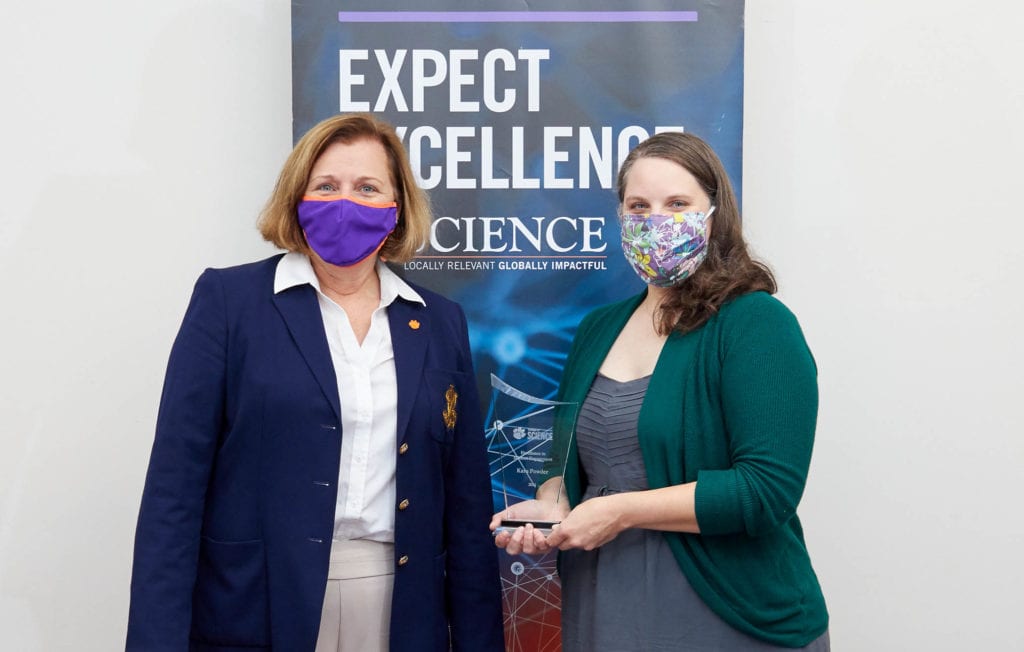
Honoree: Kara Powder
Kara Powder received the award based on her innovations in teaching and her engagement with students through Creative Inquiry. Her engagement with students in the classroom is perhaps best summed up by a comment from a student this fall, “You not giving up on me is half the reason I didn’t just call it quits this semester.” Powder has an active research program that provides engagement opportunities at both undergraduate and graduate levels. She has also started a Creative Inquiry team related to middle school education as part of her National Science Foundation CAREER grant.
Rising Star in Discovery
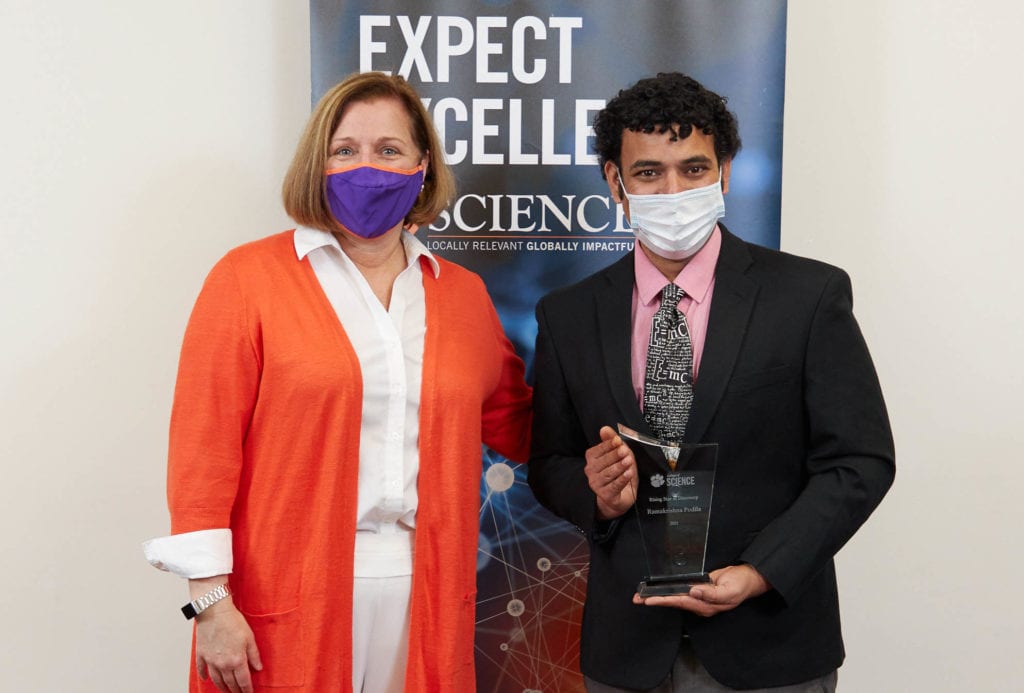
Honoree: Ramakrishna Podila
Ramakrishna Podila received the Rising Star in Discovery Award, an honor that recognizes an assistant professor or first-year associate professor who has demonstrated excellence in forefront research, emphasizing work conducted at Clemson. Podila’s research is at the interface of physics, biology and nanoscience and produced high impact publications in top journals that have been extensively cited. Web of Science listed one in the top 1 percent of papers in the field. His discoveries have been featured in prominent magazine articles. In the past three years, he has had extensive funding from NIH, NASA, South Carolina EPSCoR, NSF-EPSCoR and Haworth, Inc. A supporting letter stated, “…it is not uncommon for a faculty member to win large federal grants or publish high impact papers or mentor excellent students, but to strike a balance between all three requires a very special skill set.”
Excellence in Discovery Award
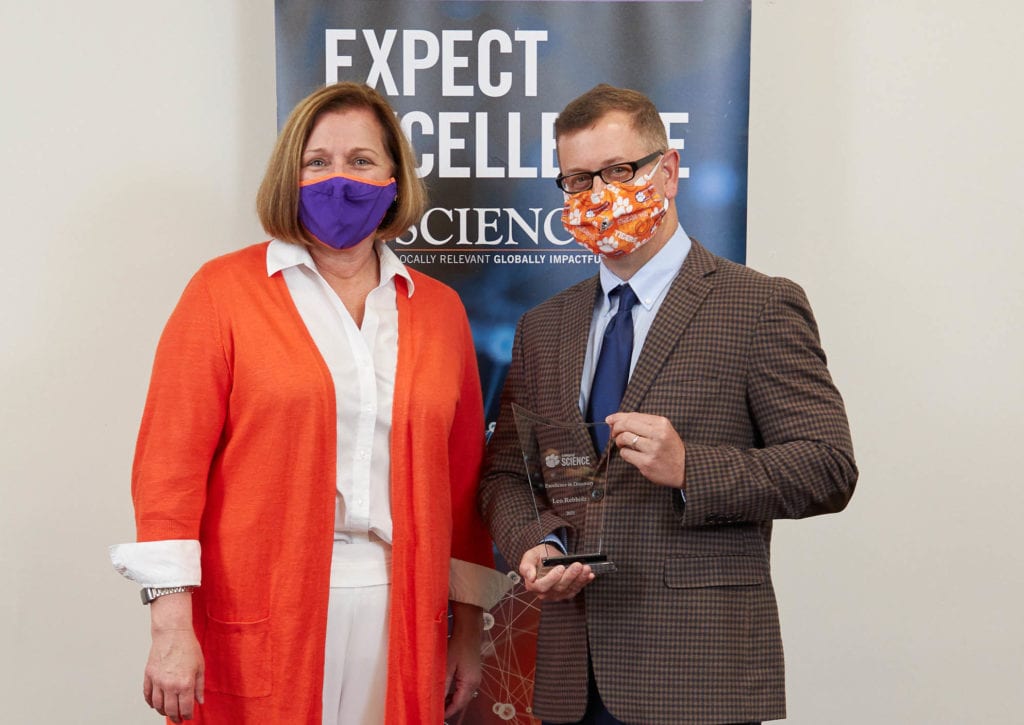
Honoree: Leo Rebholz
The Excellence in Discovery Award recognizes a tenured faculty member with demonstrated excellence in forefront research, emphasizing work performed in the previous three years. Leo Rehbholz received the award for his major impact in the field of applied mathematics. He and his collaborators recently made a mathematical breakthrough by solving a more than 50-year-old problem on the theory behind Anderson acceleration, a technique for solving nonlinear algebraic systems widely used across many areas of mathematics, science and engineering. Leading journals in applied mathematics have published this breakthrough and subsequence improvements. This work will be nominated for an award at the next Society for Industrial and Applied Mathematics annual meeting.

